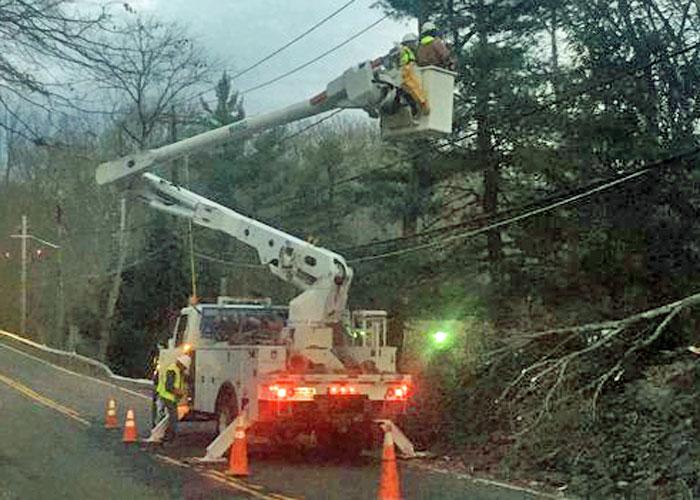ALBANY – State Senator Pete Harckham (D, Mt. Kisco) has urged the Public Service Commission to hold Con Edison accountable for its poor preparation and unacceptable response to Tropical Storm Isaias, which left tens of thousands of residents in the 40th Senate District without power for days.
Harckham’s letter was read into record during a virtual public forum held by Rory Lancman, special counsel for Ratepayer Protection at the State Department of Public Service, as part of an ongoing determination of whether the performance of the public utility corporation Con Edison, in its response to Isaias, harmed its customers and residents at-large.
“It is my perspective that the widespread damage and resulting power outages from Isaias revealed, once again, that Con Edison does not seriously prepare for natural disasters nor have they sufficiently hardened their infrastructure to withstand the magnitude of the storms that are now the new normal,” writes Harckham in his letter.
“I firmly believe the Public Service Commission must demand substantive changes from Con Edison or revoke its license to operate,” Harckham wrote.
Following Isaias, Harckham conducted a survey of both English- and Spanish-speaking residents in the 40th Senate District to learn of their experiences in the storm’s aftermath and received nearly 800 responses, two-thirds of whom were Con Ed customers. (The other third was NYSEG customers.) Over 570 residents responded that they were without power for three days or more, and over 50 stated they had lost electricity for more than a week.
Problems that residents in the 40th Senate District can expect from Con Edison, Harckham notes, in terms of a storm response include:
- Poor pre-storm planning and preparation
- Absence of mutual aid teams, pre-positioned
- Absence of Make Safe (live wire) crews in many municipalities
- Poor communications—between Con Ed and customers, municipalities, crews in the field, telecommunication providers and other utilities
- Lack of dry ice and fresh water for residents, much of it inconveniently located when provided
- Absence of materials to perform repairs (pole shortages)
- Lack of planning to identify and address supply chain shortages.








